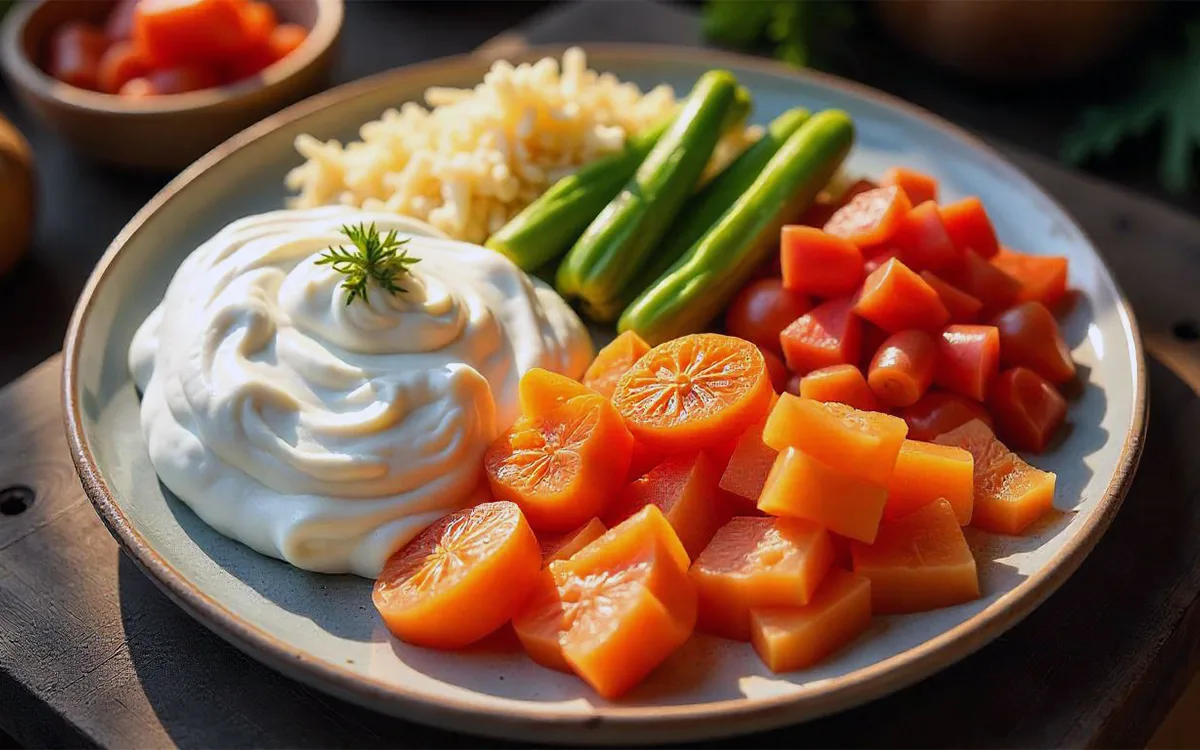Gut health is more than just a trend—it is a key part of your overall wellness. While probiotic supplements are popular, many people are now asking a simple question: Can I get probiotics naturally without taking a pill? The answer is yes. There are several natural probiotic-rich foods that help support a healthy gut without the need for capsules or powders.
These natural sources help feed the good bacteria in your gut, making your digestive system work more smoothly. Plus, they are easy to include in your daily diet and often come with added benefits like fiber, vitamins, and other nutrients. Let us look at seven easy-to-find, tasty, and natural alternatives to probiotic supplements.
What is a natural probiotic?
Natural probiotics are living bacteria and yeasts found in certain foods that can help support the bacteria in the gut. These “good bacteria” play a major role in digestion and may help with common discomforts like bloating, irregularity, or feeling heavy after meals.
Unlike probiotic supplements, natural sources give your body extra benefits like fiber and enzymes while also being part of whole, minimally processed foods. The key is to choose foods that are fermented and made without added sugars or ultra-processed ingredients.
What foods give probiotics naturally?
Here are natural probiotics: 7 alternatives to supplements for better gut health
- Yogurt (plain, unsweetened)
One of the most common probiotic foods, plain yogurt is made by fermenting milk with good bacteria. Look for labels that mention “live and active cultures.” Avoid yogurts with added sugars and flavors, which can take away from their gut-friendly benefits. Plant-based yogurts like almond or coconut can also contain probiotic strains, just check the label.
- Kefir
Kefir is a tangy, fermented milk drink that contains many strains of probiotic bacteria and yeast. It is made using kefir grains and is more liquid than yogurt, making it a great option for smoothies or as a drink on its own. Kefir is often better tolerated by people who are sensitive to dairy.
- Sauerkraut
Made from shredded fermented cabbage, sauerkraut is rich in probiotics and fiber. It is best to choose raw, unpasteurized sauerkraut found in the refrigerated section, as heat-treated versions may not have live bacteria. It makes a great side dish or topping for sandwiches and salads.
- Kimchi
This spicy fermented Korean dish is made from cabbage, radish, and a mix of seasonings. Like sauerkraut, it contains both probiotic bacteria and dietary fiber. Kimchi is also loaded with plant-based ingredients, offering added benefits for gut health.
- Miso
Miso is a fermented soybean paste often used in Japanese soups and sauces. It is made by fermenting soybeans with salt and a fungus called koji. While cooking miso may affect some of the live bacteria, adding a spoonful of miso paste to warm (not boiling) water can help retain its probiotic qualities.
- Tempeh
Tempeh is a fermented soybean cake with a firm texture and nutty taste. It is not only a source of probiotic bacteria but also high in plant-based protein. Tempeh is a great meat alternative for those following a vegetarian or vegan diet and works well in stir-fries or sandwiches.
- Pickled vegetables (naturally fermented)
Not all pickles are probiotic. To get the benefits, choose pickled vegetables that are fermented naturally with saltwater, not vinegar. These types of pickles help support gut bacteria and add crunch and flavor to your meals.
How does probiotics support gut health?
Your gut is like a garden—it needs the right care to stay in balance. Natural probiotic foods help add good bacteria, but your diet should also support their survival. Eating fiber-rich foods, such as fruits, vegetables, and whole grains, helps feed these bacteria.
Prebiotics—natural plant fibers found in foods like garlic, onions, bananas, and oats—act as fuel for probiotic bacteria. Together, they help maintain digestive health and may ease common gut discomforts.
Avoiding ultra-processed foods, added sugars, and artificial ingredients also helps keep your gut bacteria in balance. Making small changes in your daily meals can have a big impact over time.
How to include more probiotic foods daily?
Here are a few simple ways to eat more probiotic-rich foods each day:
- Start your morning with a bowl of plain yogurt topped with fruits and seeds.
- Add a spoonful of sauerkraut or kimchi to your lunch.
- Blend kefir into smoothies instead of milk or juice.
- Try miso soup as a starter before dinner.
- Use tempeh as a plant-based protein in stir-fry or tacos.
Being mindful of your meals can help maintain the balance of bacteria in the gut—no pills needed.
Conclusion
You do not always need a supplement to support your gut. Natural probiotics from everyday foods offer a simple and tasty way to care for your digestive system. From yogurt and kefir to kimchi and tempeh, adding a few of these options into your meals can help you feel better from the inside out.
And if you are looking for extra support, Sandhus Nutrition’s probiotic supplement is always here to back you up—with science, quality, and care in every capsule.
Checkout This Blog: Understanding How Probiotics and Prebiotics Work Together for a Healthy Gut

